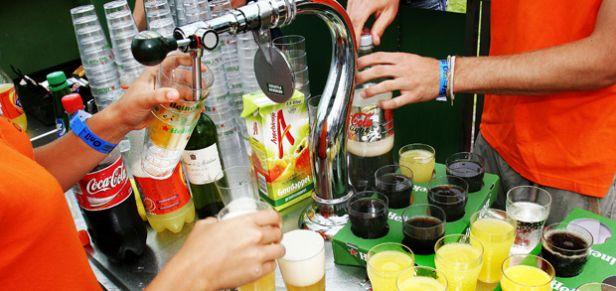'It is pedantic and patronising'

Utrecht student and sport societies are unhappy about potential changes in the Licensing and Catering Act. “It is pedantic and patronising."
Last week the Dutch Lower Chamber debated on a change in the Licensing and Catering Act to reduce the use of alcohol among youngsters. They spoke about raising the age for buying alcohol from sixteen to eighteen and limiting the time for student and sport societies to serve beer and wine.
Whether the age limit will indeed be going up is as yet unsure, as number of parties in the Lower Chamber voiced their criticism. The Utrecht city councillor for youth affairs, Rinda den Besten, is in favour of raising the age limit as long as this will be implemented nationally and not differ from town to town. In the local newspaper AD/Utrechts Nieuwsblad of April 13th , she argues that drinking alcohol before the age of 21 can cause major brain damage. “I was really shocked when shown the brain scans. They demonstrate how badly a young brain can be damaged by alcohol. I am not against drinking in general but I am when it affects the developing brains of young people.” Raising the age limit to 21 would be unrealistic in a student town like Utrecht, she thinks. Moreover, youngsters have the right to make their own decisions once they turn 18. Just the same, it will certainly have an effect on student and sport societies in Utrecht. 17 year-old first-year students of universities of applied sciences (HBO) will not be allowed to drink beer at their clubs. Student rowing association U.S.R. Triton is not happy. “Among our members are a small group of 17 year-old students of universities of applied sciences and this new legislation would lead to an unnecessary large amount of monitoring. A very unwelcome situation,” says Triton president Pieter Huibers. Roemer Vlasveld, president of student society Unitas S.R., is also critical: “The biggest problem, in my opinion, is not the use of alcohol of 16 to 18 year-olds but the unbridled behaviour of the under-16s. Obviously, alcohol is never really healthy but raising the age limit will only complicate its enforcement and thus fail to hit the target.” The city of Utrecht does not wish to further discuss the enforcement of a possibly raised age limit to 18 as long as the change in legislation is still being debated.
Another point of criticism expressed by the societies is the limitation of the hours when alcohol can be served. The proposed changes in legislation would, for instance, allow the local authorities to decree that beer can only be served from 9 or 10 in the evening. “If this would happen, our student restaurant would no longer be very popular,” says Vlasveld. He thinks it remarkable that this would also apply to Unitas, for “we are not just any ordinary bar allowing any youngster to come in and drink beer. Unitas is not open to all and I think we already monitor our guests better than any other bar or club in Utrecht.” Pieter Huibers, president of Triton, is also not amused: “We serve dinner twice a week at eight o’clock, after rowing practice. The new legislation would imply that members can no longer drink beer at dinner. Really, that would not be the end of the world as most will stay on for drinks after nine, but I do think it rather pedantic and patronising."
Casper Wolfert